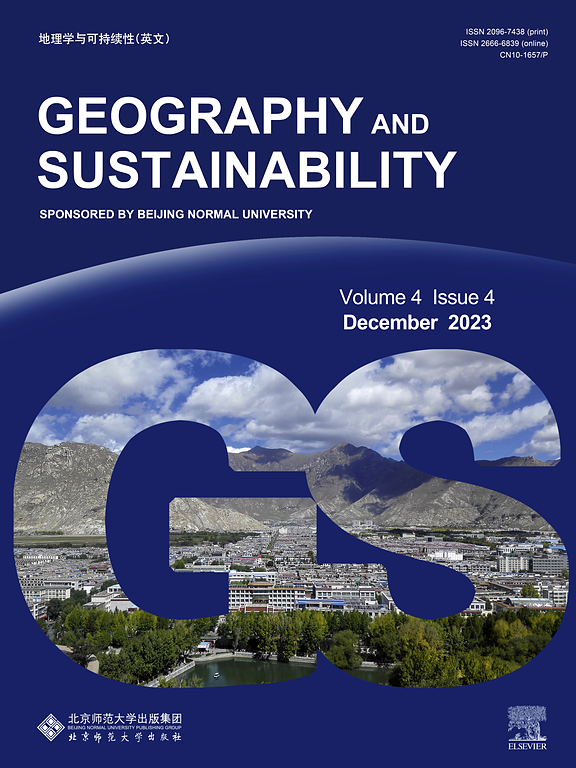Reflective thinking meets artificial intelligence: Synthesizing sustainability transition knowledge in left-behind mountain regions
IF 8
1区 环境科学与生态学
Q1 GEOGRAPHY, PHYSICAL
引用次数: 0
Abstract
We demonstrate a multi-method approach towards discovering and structuring sustainability transition knowledge in marginalized mountain regions. By employing reflective thinking, artificial intelligence (AI)-powered text summarization and text mining, we synthesize experts’ narratives on sustainable development challenges and solutions in Kardüz Upland, Türkiye. We then analyze their alignment with the UN Sustainable Development Goals (SDGs) using document embedding. Investment in infrastructure, education, and resilient socio-ecological systems emerged as priority sectors to combat poor infrastructure, geographic isolation, climate change, poverty, depopulation, unemployment, low education levels, and inadequate social services. The narratives were closest in substance to SDG 1, 3, and 11. Social dimensions of sustainability were more pronounced than environmental dimensions. The presented approach supports policymakers in organizing loosely structured sustainability transition knowledge and fragmented data corpora, while also advancing AI applications for designing and planning sustainable development policies at the regional level.

求助全文
约1分钟内获得全文
求助全文
来源期刊

Geography and Sustainability
Social Sciences-Geography, Planning and Development
CiteScore
16.70
自引率
3.10%
发文量
32
审稿时长
41 days
期刊介绍:
Geography and Sustainability serves as a central hub for interdisciplinary research and education aimed at promoting sustainable development from an integrated geography perspective. By bridging natural and human sciences, the journal fosters broader analysis and innovative thinking on global and regional sustainability issues.
Geography and Sustainability welcomes original, high-quality research articles, review articles, short communications, technical comments, perspective articles and editorials on the following themes:
Geographical Processes: Interactions with and between water, soil, atmosphere and the biosphere and their spatio-temporal variations;
Human-Environmental Systems: Interactions between humans and the environment, resilience of socio-ecological systems and vulnerability;
Ecosystem Services and Human Wellbeing: Ecosystem structure, processes, services and their linkages with human wellbeing;
Sustainable Development: Theory, practice and critical challenges in sustainable development.
 求助内容:
求助内容: 应助结果提醒方式:
应助结果提醒方式:


